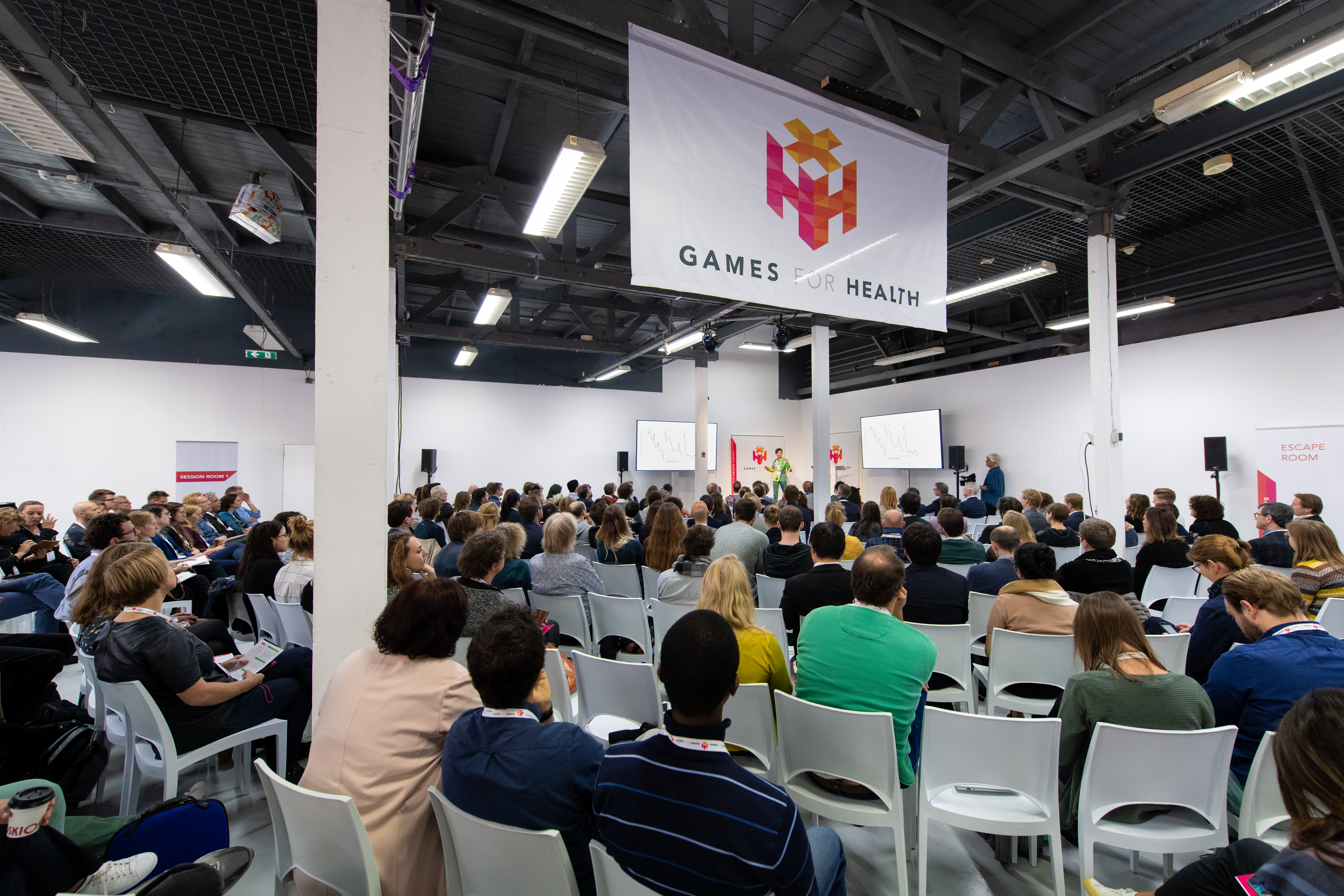Submissions for 2019
With the 8th edition fresh in mind, the time to relax is over. Another interesting theme will offer you an excellent opportunity to present your research, experiences, case studies, game design, business case or other related topics for our international audience. All embedded in the theme, playful intelligence.
Playful intelligence is the theme for the 9th Games for Health Europe conference. What do we mean by the term ‘playful intelligence’? The American developmental psychologist Howard Gardner describes this term in the context of intrapersonal and interpersonal intelligence. Intrapersonal intelligence is related to our own behavior and especially our feelings and emotions. Interpersonal intelligence is our understanding of other peoples’ moods, motivation and intentions. The combination of both, playful intelligence, refers to how these factors can influence human behavior. In other words, how can we engineer behavioral change, an ambition for which serious, or applied, games have long been the ultimate tool?
Play is in our genes and is an essential part of our intellectual system. In the early days of our lives there is little other than play. Speaking, learning to walk, or to ride a bike, are all learnd through play, and often we learn faster and better by play than from a book. Millions of $, € and £ are still spent on campaigns to get us to cease smoking, to avoid high fat food, to influence social behavior, etc., but we know that behavioral change is more easily achieved through play. So it needs us, the Games for Health Europe community, to put our money where our mouth is and show how we can help to assure sustainable and affordable health.
Like many scientific conferences, Games for Health Europe is highly rated with several abstracts accepted for publication in the Games for Health Journal. If your abstract is accepted to be presented we will charge a fee of € 100,- for your participation.
Submissions for 2019
With the 8th edition fresh in mind, the time to relax is over. Another interesting theme will offer you an excellent opportunity to present your research, experiences, case studies, game design, business case or other related topics for our international audience. All embedded in the theme, playful intelligence.
Playful intelligence is the theme for the 9th Games for Health Europe conference. What do we mean by the term ‘playful intelligence’? The American developmental psychologist Howard Gardner describes this term in the context of intrapersonal and interpersonal intelligence. Intrapersonal intelligence is related to our own behavior and especially our feelings and emotions. Interpersonal intelligence is our understanding of other peoples’ moods, motivation and intentions. The combination of both, playful intelligence, refers to how these factors can influence human behavior. In other words, how can we engineer behavioral change, an ambition for which serious, or applied, games have long been the ultimate tool?
Play is in our genes and is an essential part of our intellectual system. In the early days of our lives there is little other than play. Speaking, learning to walk, or to ride a bike, are all learnd through play, and often we learn faster and better by play than from a book. Millions of $, € and £ are still spent on campaigns to get us to cease smoking, to avoid high fat food, to influence social behavior, etc., but we know that behavioral change is more easily achieved through play. So it needs us, the Games for Health Europe community, to put our money where our mouth is and show how we can help to assure sustainable and affordable health.
Like many scientific conferences, Games for Health Europe is highly rated with several abstracts accepted for publication in the Games for Health Journal. If your abstract is accepted to be presented we will charge a fee of € 100,- for your participation.








